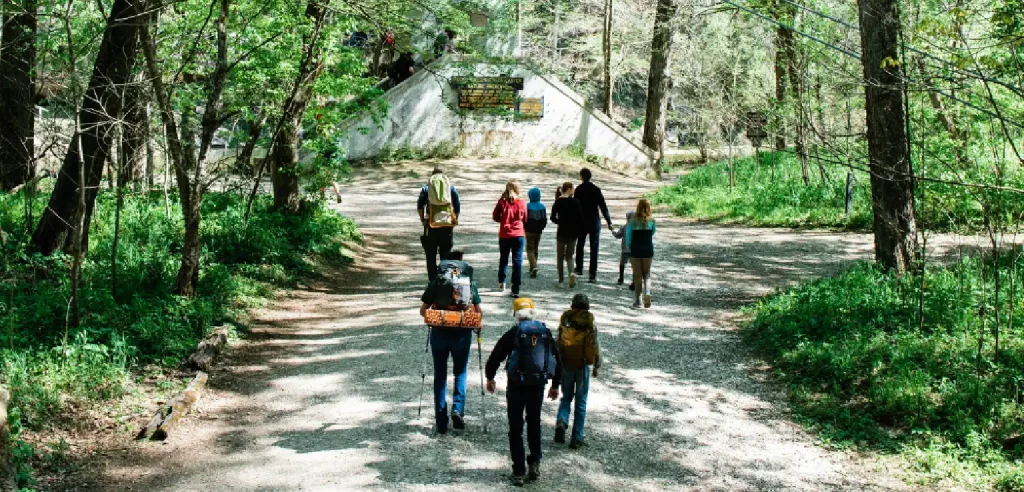Enhancing Urban Mental Health Through Increased Biological Diversity

Photo: Bradyn Shock on Unsplash.
The survival and sustainability of other species on Earth are essential to human life as we depend on environmental systems and natural resources. The intricate connections within ecosystems support not only the environment but also human health and livelihoods. For instance, biological diversity in urban areas can contribute to the mental health of the residents.
High Risk of Mental Health Issue
The relentless pace of urban living, pollution, intense job competition, and demanding performance and societal standards present daily challenges for city dwellers. These factors result in a high-pressure environment, leading to a significant rise in mental health risk among urban residents.
A study conducted by Cambridge University indicates that individuals residing in densely populated areas, such as cities, face a 20% higher risk of developing depression. There is also a staggering 68% increased likelihood of them experiencing psychosis. Similarly, reports in Asia have revealed that a striking 82% of workers are susceptible to moderate to severe mental health problems.
Nature’s Power to Heal
Nevertheless, nature has its own magic to positively impact humans, including mental health. It is said that because our ancestors evolved in wild settings and relied on the environment for survival, we have an innate urge to connect with nature.
This aligns with the positive effects that connecting with nature has on people’s mental wellbeing. Various studies indicate that looking at greenery can rejuvenate a tired brain, while nature sounds such as crickets chirping and water flow help improve concentration. Increased exposure to natural environments is also associated with higher levels of happiness and subjective well-being.
Therefore, urban areas should have green open spaces that serve not only as sources of urban oxygen and aesthetics but also as recreational facilities. However, urban green open spaces are often dominated by heavily curated greenery with intensive human intervention, such as themed gardens, parks, and manicured lawns. These spaces tend to have limited biodiversity within them.
Biological Diversity in Green Spaces
A study published by Scientific Reports confirms the interconnectedness of biodiversity and enhanced benefit of mental wellbeing. Through data gathering from 2018 to 2023 involving over 40,000 assessments, the study suggests that different types of green spaces and natural environments, characterized by varying plant life, trees, and wildlife, can provide greater mental health benefits than small-range green spaces.
Stimulation of the senses—such as different animal noises or water flows—in environments with a variety of biodiversity has been shown to improve concentration, reduce mental fatigue, and restore cognitive resources, including memory and attention span.
Hence, it is imperative for urban planning to transition from heavily curated green spaces into ones that are more conducive to biological diversity, like wild meadows, to serve as habitats for a variety of flora and fauna. The increased biodiversity shall serve as an enhancement in both conservation and wellbeing of people.
Editor: Nazalea Kusuma

Co-create positive impact for people and the planet.
Amidst today’s increasingly complex global challenges, equipping yourself, team, and communities with interdisciplinary and cross-sectoral insights on sustainability-related issues and sustainable development is no longer optional — it is a strategic necessity to stay ahead and stay relevant.


 Strengthening Resilience amid Growing Dependence on Space Infrastructure
Strengthening Resilience amid Growing Dependence on Space Infrastructure  Indian Gig Workers Push Back Against 10-Minute Delivery Service Strain
Indian Gig Workers Push Back Against 10-Minute Delivery Service Strain  Call for Governance: Grassroots Initiatives Look to Scale Efforts to Conserve Depleting Groundwater
Call for Governance: Grassroots Initiatives Look to Scale Efforts to Conserve Depleting Groundwater  Integrating Environment, Climate Change, and Sustainability Issues into Education Systems
Integrating Environment, Climate Change, and Sustainability Issues into Education Systems  Finally Enforced: Understanding the UN High Seas Treaty
Finally Enforced: Understanding the UN High Seas Treaty  Risks and Opportunities of Submarine Communication Cables for Sustainable Development
Risks and Opportunities of Submarine Communication Cables for Sustainable Development